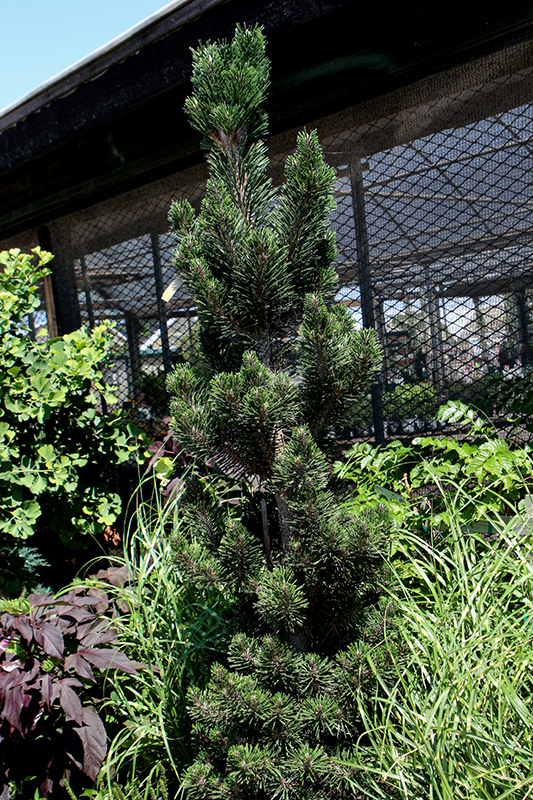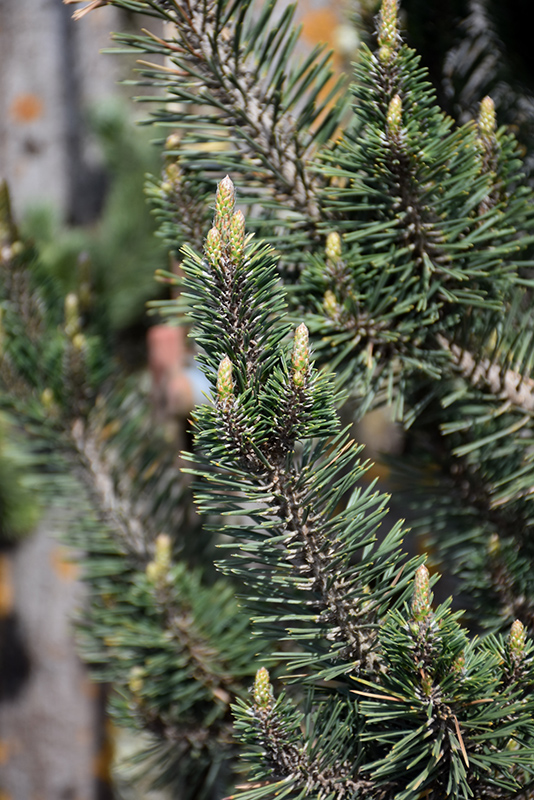>> Home
Kotobuki Japanese Black Pine
Pinus thunbergii 'Kotobuki'
Height: 7 feet
Spread: 3 feet
Sunlight:
![]()
Hardiness Zone: 6a
Description:
A moderately fast growing, narrowly upright variety featuring sturdy, irregular branching and short, very prickly, dark gray-green needles; outstanding white new growth in spring; a good character plant for larger gardens or home landscapes
Ornamental Features
Kotobuki Japanese Black Pine is a dwarf conifer which is primarily valued in the landscape or garden for its distinctively pyramidal habit of growth. It has attractive grayish green foliage with hints of dark gray which emerges white in spring. The needles are highly ornamental and remain grayish green throughout the winter.
Landscape Attributes
Kotobuki Japanese Black Pine is a dense multi-stemmed evergreen shrub with a distinctive and refined pyramidal form. Its average texture blends into the landscape, but can be balanced by one or two finer or coarser trees or shrubs for an effective composition.
This shrub will require occasional maintenance and upkeep. When pruning is necessary, it is recommended to only trim back the new growth of the current season, other than to remove any dieback. Gardeners should be aware of the following characteristic(s) that may warrant special consideration;
- Disease
Kotobuki Japanese Black Pine is recommended for the following landscape applications;
- Accent
- Hedges/Screening
- General Garden Use
Planting & Growing
Kotobuki Japanese Black Pine will grow to be about 7 feet tall at maturity, with a spread of 3 feet. It tends to fill out right to the ground and therefore doesn't necessarily require facer plants in front, and is suitable for planting under power lines. It grows at a slow rate, and under ideal conditions can be expected to live for 80 years or more.
This shrub should only be grown in full sunlight. It prefers dry to average moisture levels with very well-drained soil, and will often die in standing water. It is not particular as to soil type or pH, and is able to handle environmental salt. It is highly tolerant of urban pollution and will even thrive in inner city environments. This is a selected variety of a species not originally from North America.

